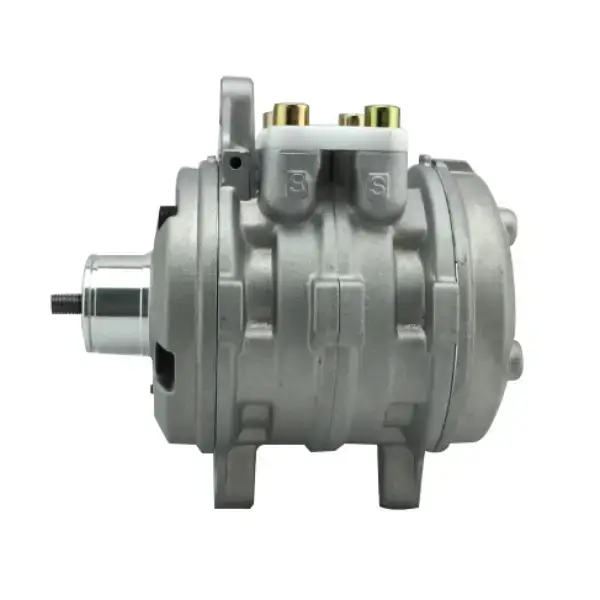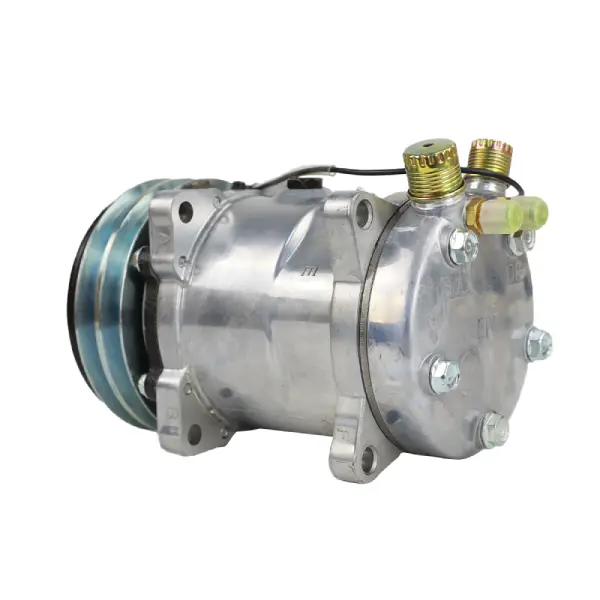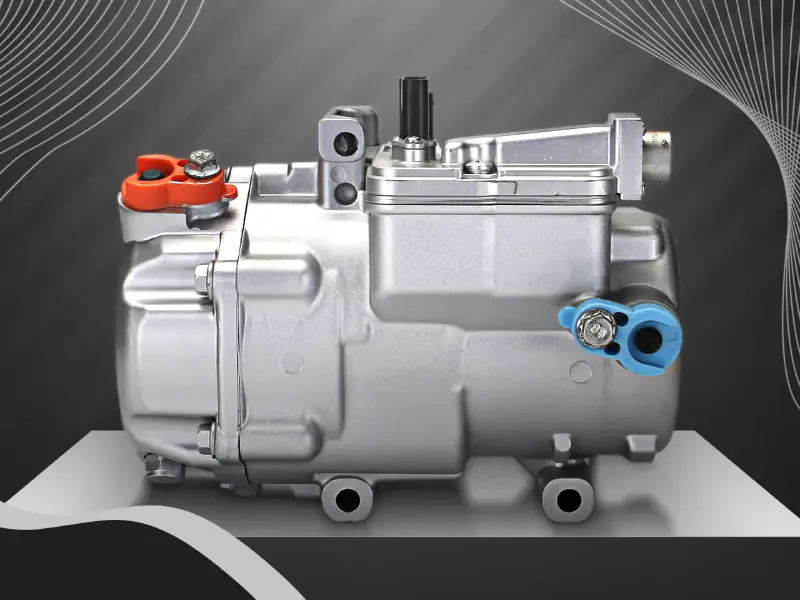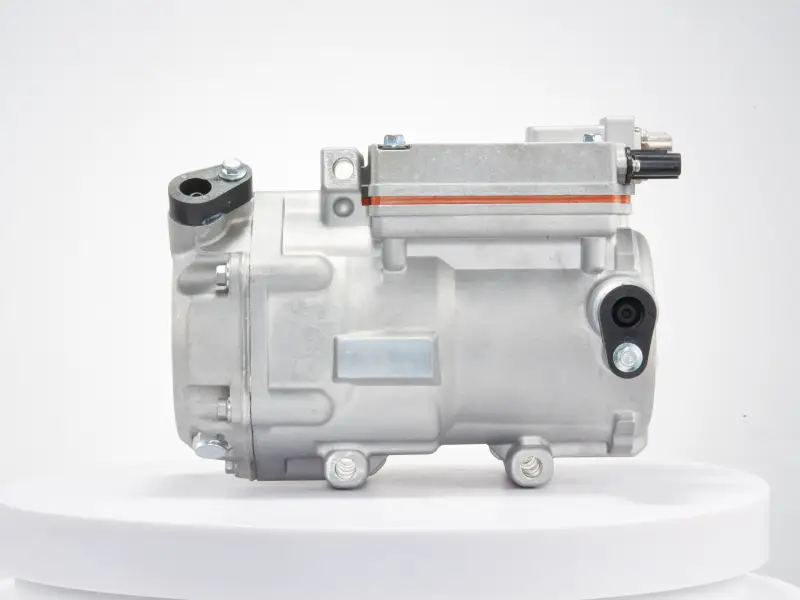Air conditioning (AC) systems in trucks are essential for providing a comfortable and safe driving environment, especially during long hauls and in hot climates. AC for trucks is designed to withstand demanding conditions and ensure that drivers remain cool and alert. This guide explores the components of truck AC systems, their importance, and considerations for maintenance and upgrades.
Truck AC components
Compressor
- Function: The compressor is the central component of the AC system, responsible for compressing and circulating the refrigerant.
- Importance: It is essential for cooling the air and maintaining a comfortable cabin temperature.
- Common Issues: Wear and tear, refrigerant leaks, and noise.
Condenser
- Function: The condenser dissipates heat from the compressed refrigerant, converting it from a gas to a liquid.
- Importance: Efficient heat dissipation is critical for the AC system to function effectively.
- Common Issues: Blockages, corrosion, and inefficient cooling.
Receiver Drier / Accumulator
- Function: Removes moisture and filters out contaminants from the refrigerant.
- Importance: Protects the AC system from moisture-related damage and ensures clean refrigerant circulation.
- Common Issues: Saturation, clogging, and contamination.
Expansion Valve / Orifice Tube
- Function: Controls the flow of refrigerant into the evaporator and allows it to expand into a low-pressure gas.
- Importance: Regulates the cooling effect by adjusting the refrigerant flow.
- Common Issues: Malfunctions, blockages, and incorrect refrigerant flow.
Evaporator
- Function: Absorbs heat from the cabin air, turning the low-pressure liquid refrigerant into a gas.
- Importance: Provides the cooling effect necessary for reducing cabin temperature.
- Common Issues: Leaks, corrosion, and insufficient cooling.
Blower Motor and Fan
- Function: Circulates the cooled air throughout the cabin.
- Importance: Ensures even distribution of cold air for driver comfort.
- Common Issues: Motor failures, fan damage, and reduced air flow.
AC Hoses and Lines
- Function: Transport refrigerant between the various components of the AC system.
- Importance: Maintain efficient and leak-free refrigerant flow.
- Common Issues: Leaks, cracks, and blockages.
Refrigerant
- Function: The medium for heat exchange, it absorbs and releases heat as it circulates through the AC system.
- Importance: Necessary for the cooling process.
- Common Issues: Low refrigerant levels, leaks, and contamination.
AC Pressure Switches
- Function: Monitor the pressure levels in the AC system to ensure safe operation.
- Importance: Protects the system from damage due to overpressure or low pressure.
- Common Issues: Sensor failures, inaccurate readings, and system shutdowns.
Control Panel
- Function: Allows the driver to set and adjust the AC system’s functions, including temperature and fan speed.
- Importance: Provides easy access to control the cabin environment.
- Common Issues: Electrical issues, unresponsive controls, and display problems.
- Comparison Table: AC for Trucks and Truck AC Components
| PART | FUNCTION | IMPORTANCE | COMMON ISSUES |
| COMPRESSOR | COMPRESSES AND CIRCULATES REFRIGERANT | VITAL FOR COOLING AND MAINTAINING TEMPERATURE | WEAR, LEAKS, NOISE |
| Condenser | Converts gas to liquid refrigerant | Essential for heat dissipation | Blockages, corrosion, poor cooling |
| Receiver Drier | Removes moisture and contaminants | Prevents moisture damage | Saturation, clogging, contamination |
| Expansion Valve | Regulates refrigerant flow | Controls cooling effect | Malfunctions, blockages |
| Evaporator | Absorbs heat from cabin air | Provides cooling effect | Leaks, corrosion, insufficient cooling |
| Blower Motor and Fan | Circulates cooled air | Ensures even distribution of cold air | Motor failures, fan damage |
| AC Hoses and Lines | Transport refrigerant | Maintain refrigerant flow | Leaks, cracks, blockages |
| Refrigerant | Medium for heat exchange | Necessary for cooling | Low levels, leaks, contamination |
| AC Pressure Switches | Monitor pressure levels | Ensures safe operation | Sensor failures, inaccurate readings |
| Control Panel | Controls AC functions | Easy access to adjust cabin environment | Electrical issues, unresponsive controls |
Can I put a portable AC in a truck?
Yes—12 V or 24 V portable units are available. Mount the unit securely and route the exhaust hose outside the cab for safe operation.
What is the 3-minute rule for truck air conditioners?
Wait 3 minutes after shutting off the system before restarting. This equalizes refrigerant pressure and protects the compressor.
Do we offer OEM or ODM services?
Full customization support: logo, packaging, model number, and user manual. CE, RoHS, and UN38.3 certificates provided. Third-party factory inspection is welcome.
Can I request customer references or samples?
Absolutely—contact us, and we’ll email you a list of recent shipments, along with samples, within 24 hours.
Importance of AC for Trucks
- Driver Comfort: Maintains a comfortable cabin temperature, crucial for long-haul drivers to prevent fatigue and enhance overall comfort.
- Safety:Reduces the risk of heat-related illnesses and keeps drivers alert, contributing to safer driving conditions.
- Equipment Protection:Prevents overheating of electronic equipment and other sensitive components inside the cabin.
- Fuel Efficiency:Well-maintained AC systems can help reduce the overall fuel consumption of the truck by operating efficiently.
- Prolonged System Lifespan:Regular maintenance of AC components extends the life of the system and prevents costly repairs.
Maintenance Tips for Truck AC Components
- Regular Inspections:Perform routine checks of the AC components, including the compressor, condenser, and hoses, to identify potential issues early.
- Clean or Replace Filters: Ensure that the air filters are clean and replace them as necessary to maintain good air flow and cooling efficiency.
- Check Refrigerant Levels: Monitor and maintain adequate refrigerant levels. Low refrigerant can cause poor cooling and damage the compressor.
- Test the System: Periodically run the AC system, even in cooler months, to keep the components lubricated and ensure proper function.
- Professional Servicing: Have the AC system serviced by professionals annually to check for leaks, recharge refrigerant, and perform detailed inspections.
Upgrading Truck AC Systems
- Enhanced Cooling Capacity:Upgrading to a higher capacity compressor or a more efficient condenser can improve the cooling performance, especially in larger trucks or hot climates.
- Advanced Climate Control:Consider installing advanced control panels that offer automatic climate control and better temperature regulation.
- Eco-Friendly Refrigerants:Switch to newer, eco-friendly refrigerants like R1234yf, which have a lower environmental impact than traditional Freon.
- Improved Air Circulation:Installing more powerful blower motors or additional vents can enhance air circulation and cooling efficiency.
- Insulated Cabins:Improve the insulation of the truck cabin to reduce heat ingress and maintain a cooler temperature inside.
Manufacturer Information
Anchor Group is a renowned manufacturer of high-quality truck AC components, offering a comprehensive range of products for maintaining and upgrading truck air conditioning systems. They provide durable and reliable parts that meet stringent industry standards, ensuring optimal performance and longevity for commercial vehicles.
By understanding and maintaining the various parts of a truck’s AC system, you can ensure a comfortable and safe driving environment, prolong the lifespan of the system, and avoid costly repairs.







